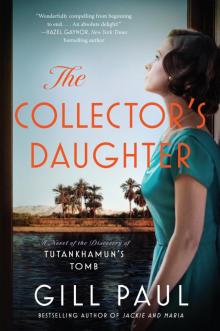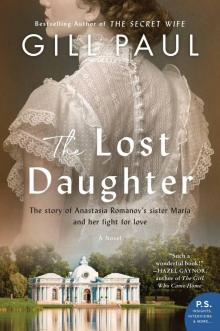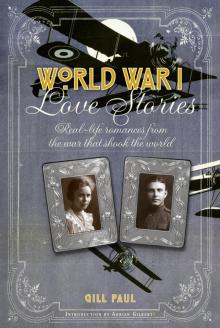No Place For a Lady Read online
Page 13
She continued to write to Lucy once a week but there had been no replies. They’d heard nothing from her since the anxious letter from Varna asking advice on cholera. Dorothea became increasingly fearful and even began to scheme about sailing out there to rescue her little sister. How would she go about such a thing and how much would it cost? But the problem remained that she didn’t actually know where Lucy was. She pored over the globe in her father’s study, calculating the distance between Constantinople, Varna and Crimea. If she travelled East, how would she ever find Lucy? And still she clung to the hope that the war would be over soon. Everyone had said at the outset they’d be home by Christmas, but that was beginning to look wildly optimistic and Mr Russell’s forecasts were gloomy. Winter was setting in and it seemed unlikely the allies could take the well-defended port of Sevastopol before spring.
A week after the report of Balaklava, Dorothea was skimming the newspaper when her eye was caught by a short paragraph saying that Florence Nightingale’s friend Mary Stanley was leading another delegation of nurses to Constantinople. Dorothea still kicked herself that she had thrown away her chance to accompany Miss Nightingale last time, through her own thoughtless words. If only she could have a second chance she was determined to prove herself worthy.
First of all, she asked her matron, Miss Alcock, to write to Miss Stanley recommending strongly that Dorothea should be included in the party. By return, Miss Alcock received a note suggesting that Dorothea should write to Mrs Sidney Herbert, the wife of the Minister for War. Dorothea lost no time in applying, listing her surgical experience and adding that she was available to leave at very short notice. This exchange of letters took place over the space of two days and she felt a frisson of excitement and at the same time gut-clenching anxiety that she might be turned down yet again. It was hard to concentrate on work while keeping an eye on the ward door for a messenger who might bring a reply.
A week passed without any news and then on the 30th November a letter came from Mrs Herbert herself asking if Dorothea would care to present herself at her Belgrave Square house that very day. Dorothea was beside herself with nerves as her carriage drew up, trying to predict all the interview questions that might be directed at her. She had already decided to claim that, contrary to any impression she may have given last time, she was not planning to seek out her sister. She mustn’t fall into that trap.
In fact, there was no interview this time. Mrs Herbert welcomed Dorothea into a vast drawing room where she was bemused as they measured her for boots, galoshes and a woollen cape. She was then sent across to Miss Stanley’s house nearby and given two shapeless blue gowns, which would be her nursing uniform and should be worn with an apron and cap, which she was expected to supply herself.
‘I’m so glad you can join us, my dear,’ Miss Stanley smiled, and Dorothea wasn’t sure if she remembered their previous encounter. ‘We are more necessary than ever, given news from the Crimea. Did Mrs Herbert tell you the departure date?’
Dorothea shook her head, scarcely daring to believe she really was going this time.
‘Tomorrow evening you must attend a meeting at Mrs Herbert’s house, where we will have the honour of being addressed by her husband, the Minister for War, and the following morning we catch the train for Folkestone. There is much to be done.’
Dorothea left with her new uniform and stood for a few moments in the street, gathering her thoughts. Her life had changed immeasurably in the last hour and she knew it would never be the same again. She wrapped her arms around herself to steady her nerves, as if giving herself a hug.
The next twenty-four hours were a whirlwind of farewells – to her matron and the patients at Pimlico, to her friend Emily, and, most importantly, to her father.
‘Who will look out for me?’ her father asked, in a querulous tone.
‘Henderson will do everything to ensure your comfort, Papa. He has even promised to give up his afternoon off until my return so you will never be left unattended.’
‘But why must you go?’
Dorothea explained again, knowing that her father would have forgotten by dinnertime. His eyes stared blankly, his short-term memory all but destroyed, and his logic that of a four-year-old child. She sometimes wondered if some disease of the brain were responsible rather than just the ravages of old age but had never heard of a cure. All they could do was look to his immediate comfort, something Henderson managed with more patience than she could muster.
Miss Stanley had said they were only to take one box and a small bag apiece, so Dorothea packed with great care. She took a full kit of medical essentials, several spare aprons and caps, her warmest undergarments and nightwear, needles and thread, some writing paper and envelopes. There was no room for eveningwear and she took just one day dress, imagining she would spend most of her time in uniform.
Mr Sidney Herbert was boyish-looking, with large brown eyes and a sweep of wavy hair across his forehead, but in his address he was every inch the statesman. He warned them to expect hardship and discomfort but said that they were representatives of their country and must be obedient at all times. There was a long legal agreement to sign: they agreed to devote their time to nursing the sick and wounded of the British army under the direction of the Superintendent of Hospitals (in other words, Miss Nightingale) and that the wages would range from ten to twenty-five shillings a week depending on age and experience.
As he spoke, Dorothea looked surreptitiously at the other women in the room. There were over thirty of them, almost all older than her, and roughly half were nuns. Before long she hoped to have made new friends amongst them. She looked forward to that.
When she got home, it was after nine o’clock but she noticed a lamp was lit in the drawing room and Henderson told her she had a visitor. She removed her cloak and entered the room to find Mr Goodland pacing in front of the fireplace. Her first reaction was alarm.
‘Mr Goodland! Are you all right? Has something happened to Emily?’
He frowned. ‘Forgive me for calling so late, Miss Gray. Emily is well but she gave me some news this evening that I felt I must … I have to talk to you about.’
‘Pray, sit down.’ Dorothea had a sense of foreboding. ‘Shall I call for tea?’
‘What I have to say will not take long.’ He remained standing, but Dorothea sat down to steady herself. There was a long pause while he mustered his words. ‘I understand that you intend to travel to the Turkish lands to nurse with Miss Nightingale’s ladies. I am here to ask you not to go.’
She was startled: ‘I’m afraid the arrangements are already made and I leave tomorrow morning. I’m sorry I did not have time to come to your chambers to bid you farewell but there has been much to do.’
‘All the same, Miss Gray, I ask you to cancel your plans and consider staying here and marrying me. You must be aware that I have long admired you, both for your intelligence and the sweetness of your character. You would make the ideal wife for a man such as myself. I would see that you want for nothing …’ His face reddened at her shocked expression. ‘Surely you cannot be surprised? You must have been aware of my intentions.’
‘No, I swear; not at all.’ She felt awkward; in fact, she had wondered at first whether his thoughts ran in this direction but had dismissed it when he gave no indications of romantic interest.
‘All this time I have visited you every Sunday. Earlier this year you trusted me to perform a service for you in writing a letter on a most important family matter. I felt sure you knew …’
‘Genuinely, I had no idea, or else I would have …’ Dorothea’s heart was beating hard. How could she let him down gently? ‘Mr Goodland, you have been a most excellent friend to my family and I am grateful for your attentions, but my feelings for you are simply that – friendship.’
He cleared his throat. ‘Perhaps you need time to think about my offer. That would be perfectly understandable.’
‘There is no time, since I leave tomorrow. I am determined to se
ize this opportunity to take care of our brave soldiers. The disappointment when I was not selected for Miss Nightingale’s original band of nurses has merely strengthened my resolve. I am sorry, Mr Goodland. I am flattered, of course, but I must decline your offer.’ She folded her hands in her lap to stop them shaking.
She could tell from the scowl and the stiff set of his shoulders that he was cross. ‘If you feel you must go, we will have to see how things stand upon your return. I cannot leave my offer open unconditionally but if I have not found another wife by then, perhaps we can discuss this matter again.’
Dorothea almost gasped at his audacity. His attitude almost seemed to imply that this proposal was an act of charity and she should consider herself lucky. ‘I urge you to seek another wife, sir, as I have no intention of becoming Mrs Goodland, either now or in the future.’
He snorted with anger, seeming about to say something else then thought better of it. ‘In that case, I must bid you goodnight, Miss Gray.’
She stood to see him out but he strode ahead of her and slammed the door to the hall behind him. Instead of going after him she sat down to calm her nerves.
She knew she was making the right decision. She couldn’t imagine herself as the wife to such a dry, stilted man. They had so little in common that conversation was an effort and there was a pomposity about him she found unpleasant. Even though it seemed likely to be the only marriage proposal she would ever receive, it was better to be happy and single than unhappily wed. She hoped Emily would not be cross with her for spurning her brother; she would write to explain.
Next morning when her driver dropped her at London Bridge station to catch the Folkestone train, Dorothea was brimming with anticipation and had already put the awkward scene of the previous evening to the back of her mind. She beamed at her fellow travellers and couldn’t wait for the train to start moving away from the platform. Every mile she travelled was a mile closer to Lucy, and to a new, more fulfilling life.
Chapter Nineteen
Dorothea had never gone further than Bath before and she marvelled at the sights along the way: the bustling Gare du Nord in Paris, full of the excited babble of French travellers; the steamer down the Rhône, which sat fog-bound for two hours before the sun burned through and made the land glow vivid green; the lines of poplars marking the waysides, which she knew had been planted by Emperor Napoleon; the noisy port of Marseilles where huge cargo ships were being loaded and unloaded; Mount Stromboli, like a mountain of fire against the blackness of the water; and the glorious port of Piraeus where they were allowed ashore for a few hours to see the impressive archaeological ruins. Their ship, the Egyptus, rolled around in the water and Dorothea frequently felt nauseous, but she found that walking in the bracing air on deck usually settled her stomach.
Soon she had chatted to many of the women in their party but the one to whom she felt most drawn was Elizabeth Davis, a plain-speaking Welshwoman of sixty-five years of age, who had led a life of considerable adventure. She could talk a blue streak and soon Dorothea had learned her history. Miss Davis had left home at the age of fourteen and worked in service for families who took her all over Britain and Europe. That’s how in 1815 she came to be in Belgium at the time of the Battle of Waterloo. She became engaged to a Liverpool ship’s captain but he tragically drowned two days before their wedding. Thereafter she travelled the world as nanny to the children of another sea captain, going to the West Indies, India, Australia and South America. On her return she trained as a nurse at Guy’s Hospital in London and had volunteered to come to the Crimea as soon as she heard of the need for nurses.
‘I don’t like the sound of Florence Nightingale,’ she told Dorothea, with narrowed eyes. ‘I haven’t met her but I judge people on their names, and I don’t like hers.’
Dorothea laughed. ‘Have I passed the name test?’
‘You’ll do,’ Elizabeth said, straight-faced. ‘You don’t have airs and graces at least. We’ll find out later about your capabilities as a nurse. There are a few in this party who look like Mrs Gamp.’
Dorothea chuckled. Mrs Gamp was a caricature of a nurse in Charles Dickens’ novel Martin Chuzzlewit, a drunken creature entirely lacking in morals. ‘Mr Dickens did us no favours there. I’m sure many people formed their opinion of nurses from his portrait.’
‘The shame is that I’ve met a good many nurses who could have been his model. I’m sure you have as well. Tell me, what led you to volunteer to come out here?’
Dorothea confided in her about Lucy; there was plenty of time to tell the story of their quarrel over Lucy’s hasty marriage, and Elizabeth tut-tutted when she heard Charlie was estranged from his family. Dorothea told of the two letters they’d received, the last one from Varna at the height of the cholera epidemic and nothing since.
‘You would have had notification from the army if she had succumbed to illness,’ Elizabeth assured her. ‘They write letters to the families.’
Dorothea had thought of this. ‘But Charlie is her family now. Perhaps he omitted to inform us. Relations between us are hardly cordial.’
‘You would have heard if she died,’ Elizabeth repeated firmly. ‘I’ll do my best to help you find her. She’s out there somewhere.’
They arrived in Constantinople at sunset on the 18th December and Dorothea’s first sight of the mosques and minarets was like an illustration from Arabian Nights, with black silhouettes against an orange sky. The party expected to be taken straight to the Barracks Hospital in Scutari, where reports said there were three thousand men lying wounded, but instead they were kept on board ship for a night and could only gaze across at the flickering gas lamps on shore and listen to the sounds of boatmen calling to each other in foreign dialect. When they awoke at dawn, they were told they were being accommodated in the Hôtel d’Angleterre on the European side of the Bosphorus while details were worked out. As they were rowed to shore, Dorothea was disappointed that heavy grey cloud obscured the view. They bombarded Mary Stanley with questions: ‘Why are we here? What is this place? When can we start nursing?’
‘Miss Nightingale is not yet ready for us,’ came the reply from a rather flustered Miss Stanley. ‘Rooms have not been prepared. You’ll find it very pleasant in the Hôtel d’Angleterre, I’m sure. Some officers’ wives are staying here already and they have nothing but praise for the hospitality.’
Dorothea’s ears pricked up. Might Lucy be in their hotel? How wonderful that would be. While the party clustered in reception waiting for rooms to be allocated, she asked the receptionist whether they had a guest named Mrs Lucy Harvington but was disappointed to be told no one of that name had stayed there.
Elizabeth was sympathetic. ‘Life is never that straightforward. We’ll talk to the officers’ wives and I expect one of them will lead us to your Lucy.’
The hotel was very smart, easily up to European standards, and the women were told they were permitted to walk in the adjacent gardens, which belonged to the British Embassy. After they had left their bags in their rooms, Dorothea and Elizabeth went outside to stretch their legs. Despite the clouds, the weather was much warmer than at home, and it was enjoyable walking in the embassy garden where, despite the lateness of the season, they still had roses and geraniums in bloom. It was laid out like an English garden but the echoing call to prayer that rang out as they walked was a reminder that they were far from home.
They came upon three Englishwomen sitting on a bench and Elizabeth introduced them, asking, ‘Are you by any chance the wives of army officers?’
‘Yes, indeed.’
‘Were you with your husbands in Varna?’ Dorothea asked, and they said yes, that they had been left behind when the soldiers sailed for Crimea in September, then just a month ago, they were transported to the hotel here, which made a welcome change from the very poor conditions further north.
‘I wonder if you might know my sister, Lucy Harvington, whose husband is a captain with the 8th Hussars?’ Dorothea’s voice was full of hop
e, but it was instantly dashed as all three glanced at each other and shook their heads.
‘I’m sorry. We got to know most of the officers’ wives who stayed behind in Varna and I’m certain she wasn’t among them. But several managed to find a place on a ship and sail to Crimea last September, so she could be there.’
‘Unless she went with the soldiers’ wives to Scutari,’ another suggested. ‘Some were left there on the way out and didn’t even make it to Varna; others returned there after the army left Varna. I heard they all stay in the vicinity of the hospital Miss Nightingale has created in Selimiye Barracks.’
‘Yes, she could be there,’ the first woman said. ‘That would explain why we didn’t come across her.’
Dorothea turned from one to the other: Lucy could be in Varna, Scutari or Crimea, and of the three, Scutari seemed the safest. Oh, if only she were there! The women promised to ask around among their acquaintances and let Dorothea know if anyone had met Lucy.
‘Will you stay here long?’ Elizabeth asked them.
‘As long as the war lasts, I imagine,’ the first woman smiled. ‘You’ll find it’s really rather pleasant – much nicer than a winter at home. And if our husbands get leave, they may be able to sail down and visit us.’
Elizabeth pulled at Dorothea’s arm to urge her to walk on, so she said her goodbyes, thanking them for their time.
‘It’s “really rather pleasant”,’ Elizabeth mocked as soon as they were out of earshot. ‘What does she think this is? Royal Ascot?’
Dorothea agreed that the women’s attitudes seemed rather cavalier for wartime, but she speculated that their relaxed air covered up a deep-seated anxiety about their husbands’ welfare. Treating it as a restful break was simply a way of coping.
‘I think you are too generous,’ Elizabeth grumbled, but she left it at that.
At dinner that evening, they once again asked Miss Stanley when they would be proceeding to the hospital to start work. She seemed uncertain: ‘Miss Nightingale has a lot on her plate and can’t spare the time to show us the ropes. It may be that we will be based at another hospital in Constantinople, perhaps the General Hospital nearby, or maybe the new one at Koulali; at any rate I promise you will be working soon, ladies.’

 The Collector's Daughter
The Collector's Daughter The Lost Daughter
The Lost Daughter Jackie and Maria
Jackie and Maria The Affair
The Affair Love...Maybe
Love...Maybe The Secret Wife
The Secret Wife No Place For a Lady
No Place For a Lady Another Woman’s Husband
Another Woman’s Husband World War I Love Stories
World War I Love Stories World War II Love Stories
World War II Love Stories